Composer Max Richter shows us around his recording studio in Berlin
Max Richter invites us into his studio in Berlin, where he recently composed a new take on Vivaldi's The Four Seasons for classical record label Deutsche Grammophon.
All rights (including reproduction) reserved to Max Richter
It takes a certain amount of chutzpah, or a solid reserve of confidence at least, to even think about tinkering with Vivaldi's The Four Seasons, a piece of classical music most people could whistle on demand.
Max Richter has thought about it. In fact he has been thinking about it for a long while. So when the classical record label Deutsche Grammophon approached him to reimagine the piece for its 'Recomposed' series, Richter didn't have to think twice.
'Yeah, it was actually something that I had been wanting to do for ages,' says Richter from his Berlin studio. 'When I told Deutsche Grammophon this was the piece I wanted to take on, they gave me this kind of puzzled look. But they said ok.'
Richter's biggest challenge was finding a way of listening to a piece that suffers from over-familiarity anew. 'It was that over familiarity that made me want to do it,' he says. 'It's one of those pieces that you listen to so often, you begin to hate it. So in some ways, this project was a way of learning to love it again.'
Richter's work - on the albums Memoryhouse; The Blue Notebooks, a collaboration with Tilda Swinton; Songs from Before, with Robert Wyatt; 24 Postcards in Full Colour; and Infra (other collaborators stretch from Roni Size to Julian Opie) – is minimalist mood music of the highest quality, drawing influences from Steve Reich, Arvo Pärt, Michael Nyman and Brian Eno but going its own sweetly-sad way. Vivaldi's quartet of violin concertos meanwhile is definitively Baroque. Minimal it is not.
But Richter insists that The Four Seasons is anything but a museum piece. 'A lot of it is pattern-based music, repeated cells. So in that way it is very modern. There is a lot of energy and drive in it so what I have done is just that turn that up, make those pulses hit harder so it becomes almost like electronic music.'
Unlike previous releases in the recomposed series, Richter didn't just 'remix' a recording of The Four Seasons. He went back to the score and recomposed it. 'The original brief was to just remix it but I really didn't want to do that. So this is an analogue remix in a way. I am stretching things and looping things but with the original score. I didn't want to just remaster it because there is only so much you can change.
'The tricky bit is really knowing how much of me to put in it. There are bits that are just perfect and I didn't want to touch so I have just left great chunks of it in. But composers have always done this, taken pieces and reworked them. It's nothing really new.'
Max Richter's mini Berlin guide
A long-time resident of Berlin, Richter also offered us a few inside tips on the city. Altes Europa and The Barn, top his list of daytime hangouts. For after-dark activities he recommends KaterHolzig, a huge former soap factory, that has become a happening bar/club/theatre/restaurant multi-space. For galleries he recommends The Museum for Contemporary Art at the former Hamburger Bahnof.
This article was published in November 2012
Wallpaper* Newsletter
Receive our daily digest of inspiration, escapism and design stories from around the world direct to your inbox.
-
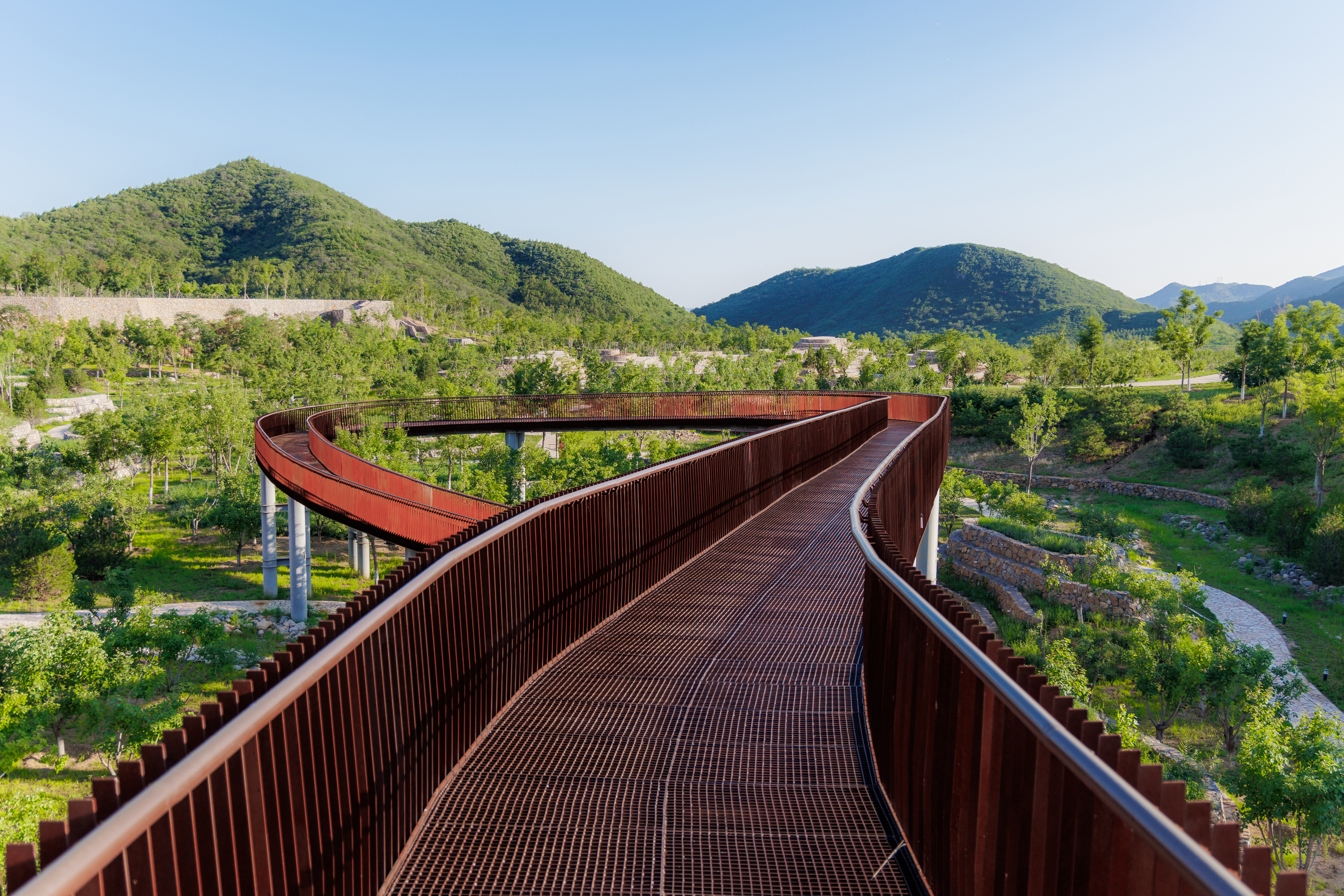 A Xingfa cement factory’s reimagining breathes new life into an abandoned industrial site
A Xingfa cement factory’s reimagining breathes new life into an abandoned industrial siteWe tour the Xingfa cement factory in China, where a redesign by landscape specialist SWA Group completely transforms an old industrial site into a lush park
By Daven Wu
-
 Put these emerging artists on your radar
Put these emerging artists on your radarThis crop of six new talents is poised to shake up the art world. Get to know them now
By Tianna Williams
-
 Dining at Pyrá feels like a Mediterranean kiss on both cheeks
Dining at Pyrá feels like a Mediterranean kiss on both cheeksDesigned by House of Dré, this Lonsdale Road addition dishes up an enticing fusion of Greek and Spanish cooking
By Sofia de la Cruz
-
 MK&G’s ‘Glitter’ exhibition: a brilliant world-first tribute to sparkle and spectacle
MK&G’s ‘Glitter’ exhibition: a brilliant world-first tribute to sparkle and spectacleMK&G’s latest exhibition is a vibrant flurry of sparkles and glitter with a rippling Y2K undercurrent, proving that 'Glitter is so much more than you think it is'
By Hiba Alobaydi
-
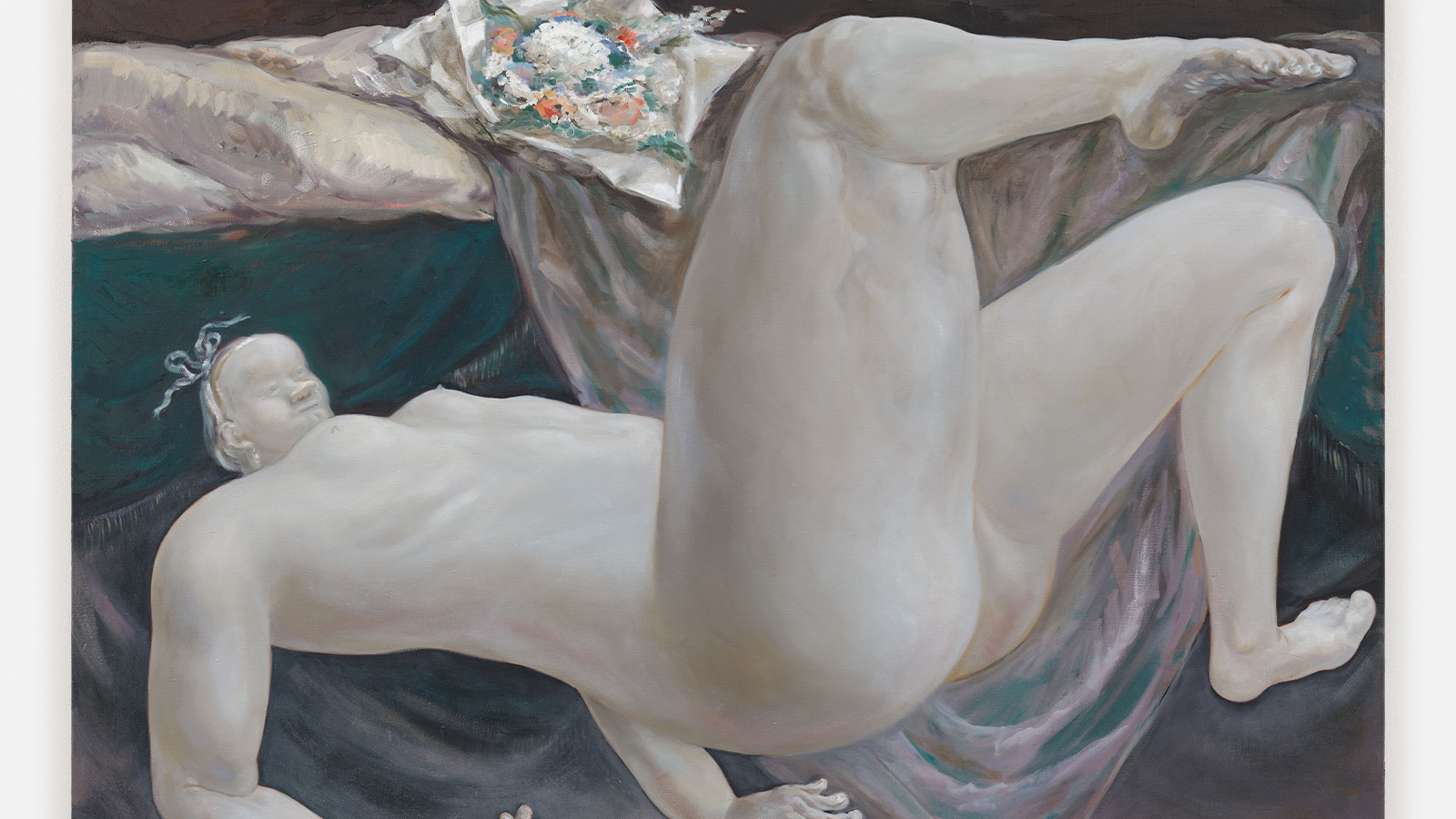 Louise Bonnet’s falling figures depict an emotional narrative to be felt rather than told
Louise Bonnet’s falling figures depict an emotional narrative to be felt rather than toldLouise Bonnet’s solo exhibition 'Reversal of Fortune' at Galerie Max Hetzler in Berlin, nods to historical art references and the fragility of the human condition
By Tianna Williams
-
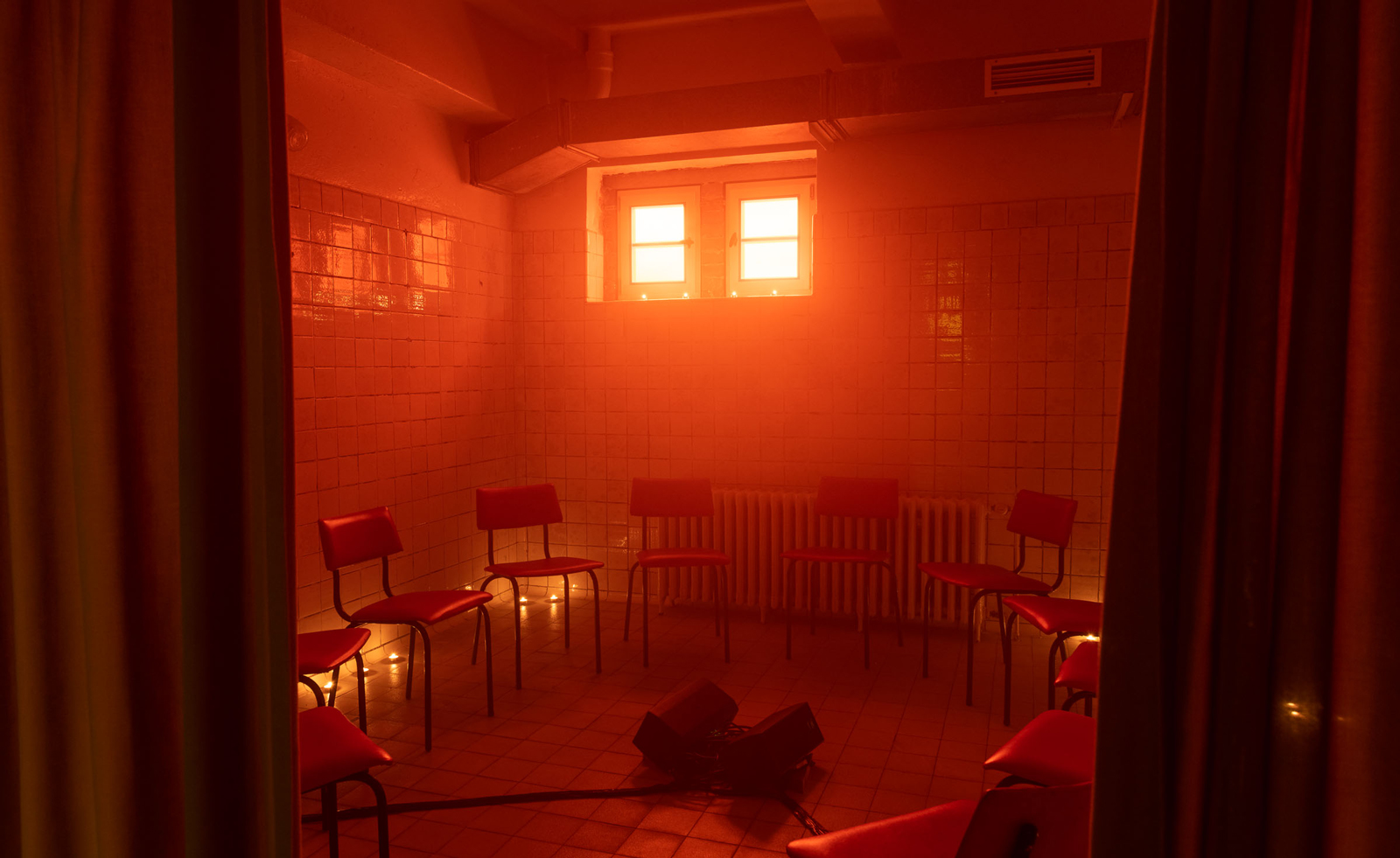 Inside E-WERK Luckenwalde’s ‘Tell Them I Said No’, an art festival at Berlin's former power station
Inside E-WERK Luckenwalde’s ‘Tell Them I Said No’, an art festival at Berlin's former power stationE-WERK Luckenwalde’s two-day art festival was an eclectic mix of performance, workshops, and discussion. Will Jennings reports
By Will Jennings
-
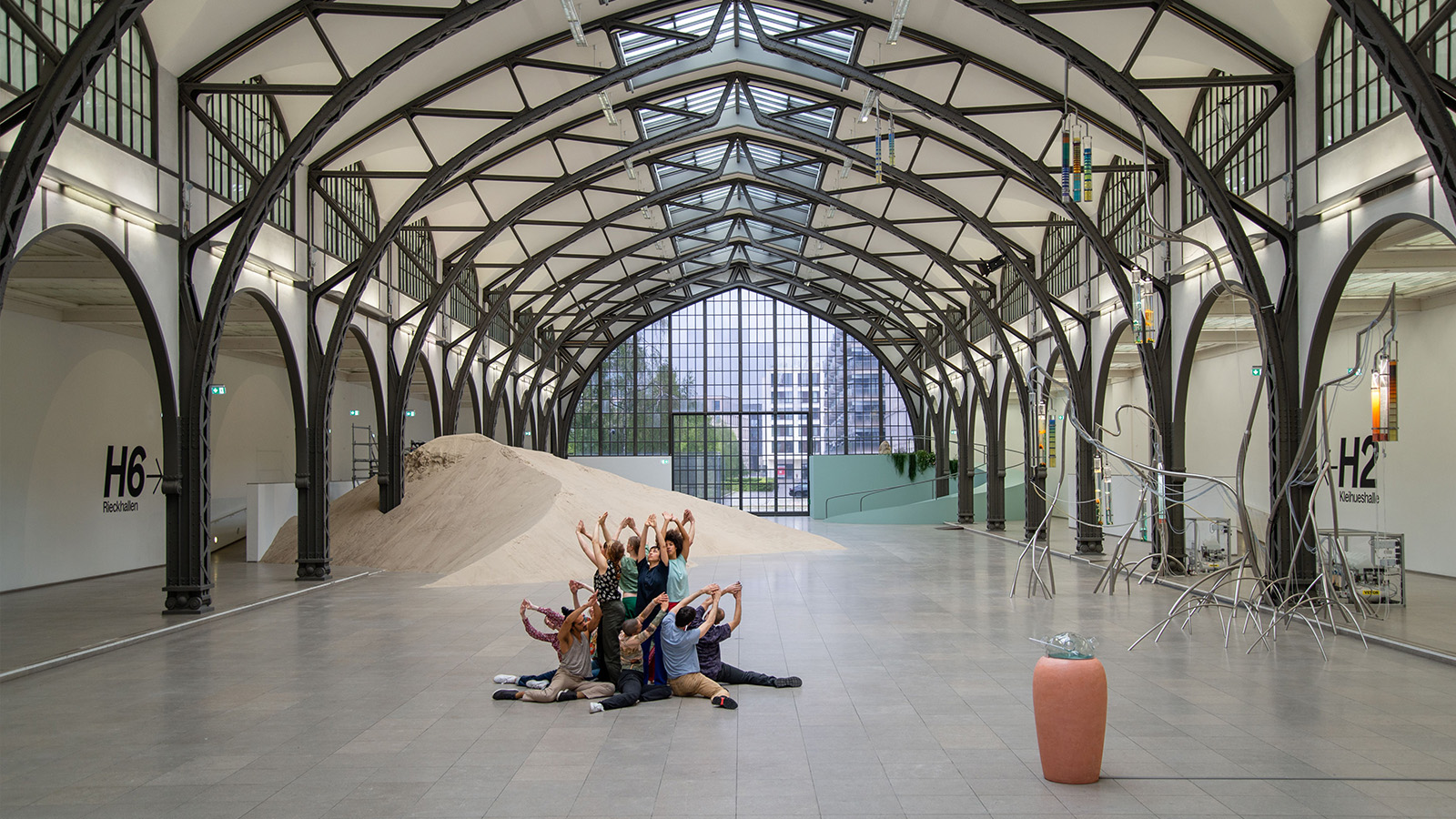 Alexandra Pirici’s action performance in Berlin is playfully abstract with a desire to address urgent political questions
Alexandra Pirici’s action performance in Berlin is playfully abstract with a desire to address urgent political questionsArtist and choreographer Alexandra Pirici transforms the historic hall of Berlin’s Hamburger Bahnhof into a live action performance and site-specific installation
By Alison Hugill
-
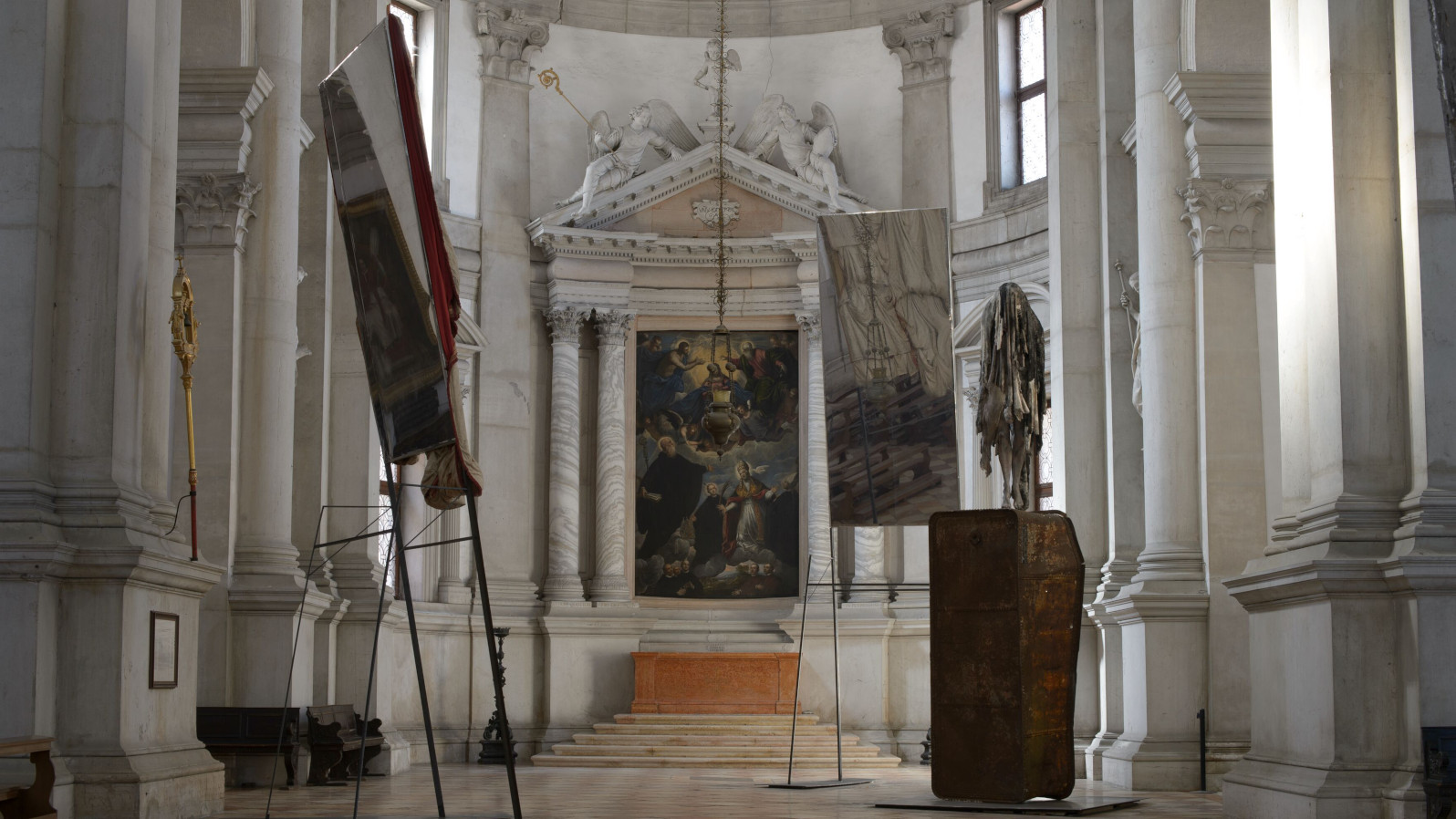 Berlinde De Bruyckere’s angels without faces touch down in Venice church
Berlinde De Bruyckere’s angels without faces touch down in Venice churchBelgian artist Berlinde De Bruyckere’s recent archangel sculptures occupy the 16th-century white marble Abbazia di San Giorgio Maggiore for the Venice Biennale 2024
By Osman Can Yerebakan
-
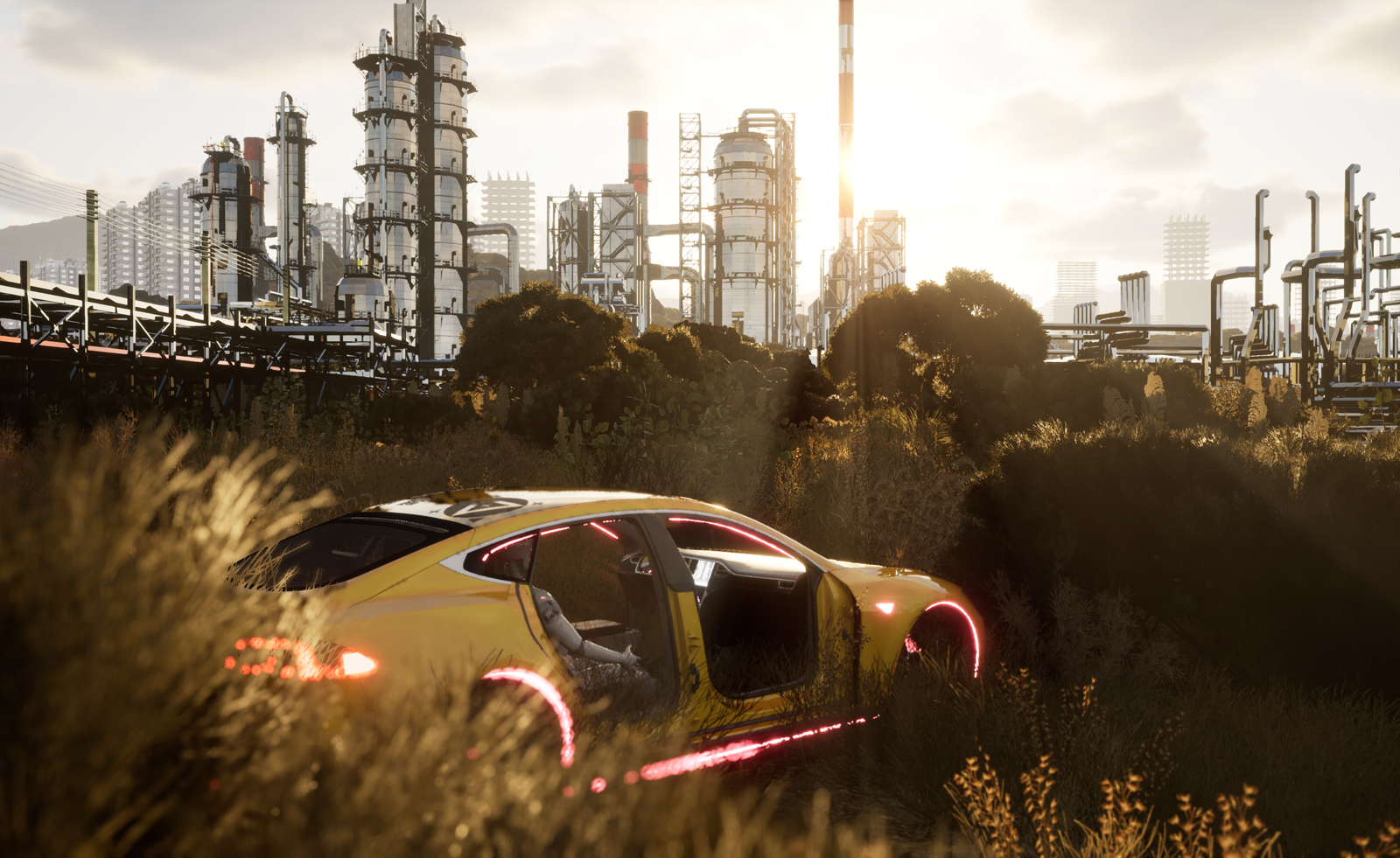 Lawrence Lek’s depressed self-driving cars offer a glimpse of an AI future in Berlin
Lawrence Lek’s depressed self-driving cars offer a glimpse of an AI future in BerlinLawrence Lek’s installation ‘NOX’, created with LAS Art Foundation, takes over Berlin’s abandoned Kranzler Eck shopping centre
By Emily Steer
-
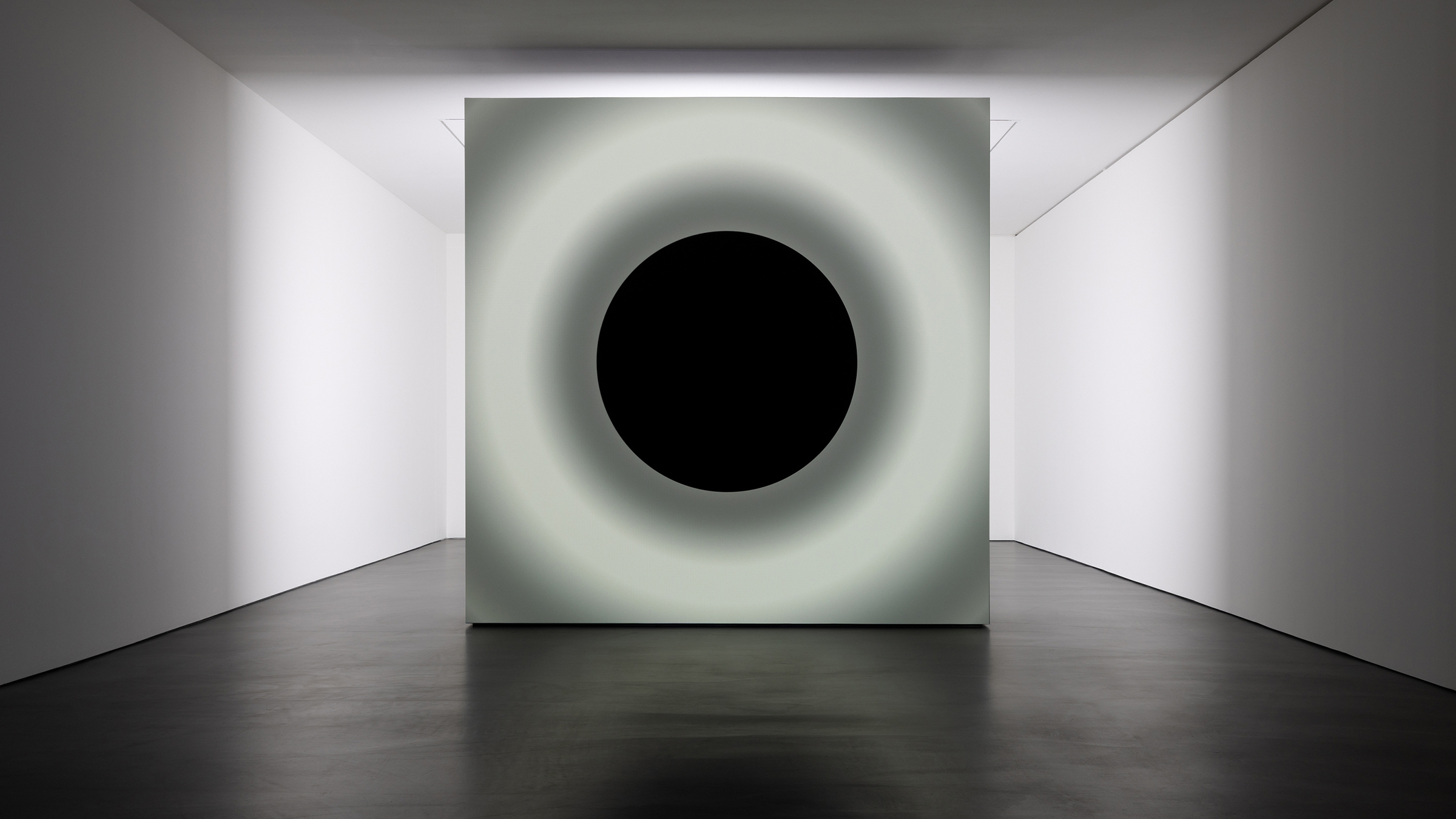 Ryoji Ikeda and Grönlund-Nisunen saturate Berlin gallery in sound, vision and visceral sensation
Ryoji Ikeda and Grönlund-Nisunen saturate Berlin gallery in sound, vision and visceral sensationAt Esther Schipper gallery Berlin, artists Ryoji Ikeda and Grönlund-Nisunen draw on the elemental forces of sound and light in a meditative and disorienting joint exhibition
By Harriet Lloyd-Smith
-
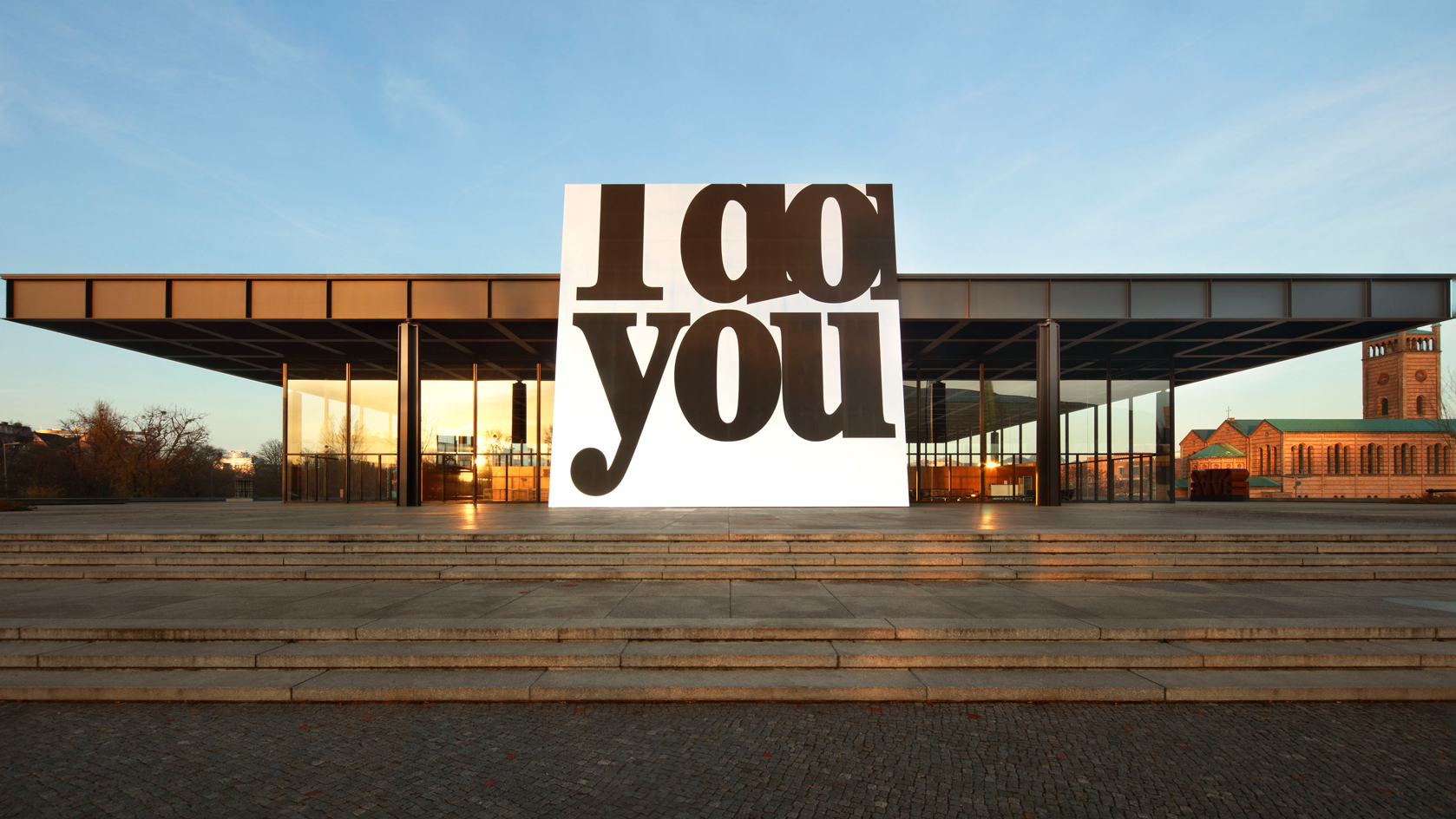 Monica Bonvicini ‘I do You’ review: bondage, mirrors and feminist takes on masculine architecture
Monica Bonvicini ‘I do You’ review: bondage, mirrors and feminist takes on masculine architectureEmily McDermott reviews Monica Bonvicini’s much-anticipated exhibition ‘I do You’ at Berlin’s Neue Nationalgalerie
By Emily McDermott